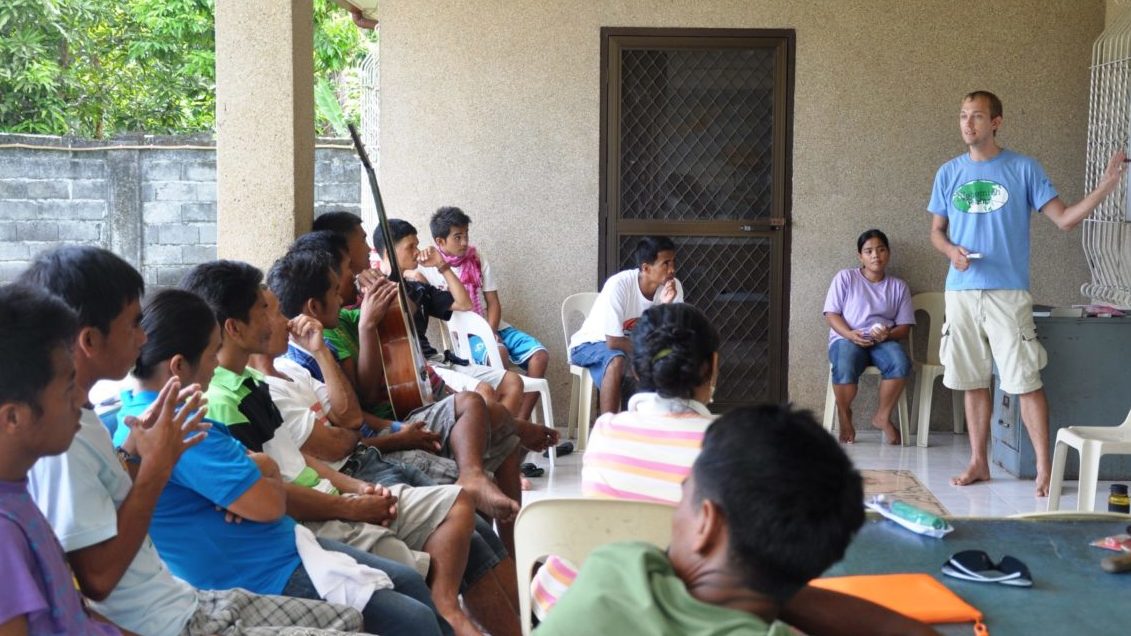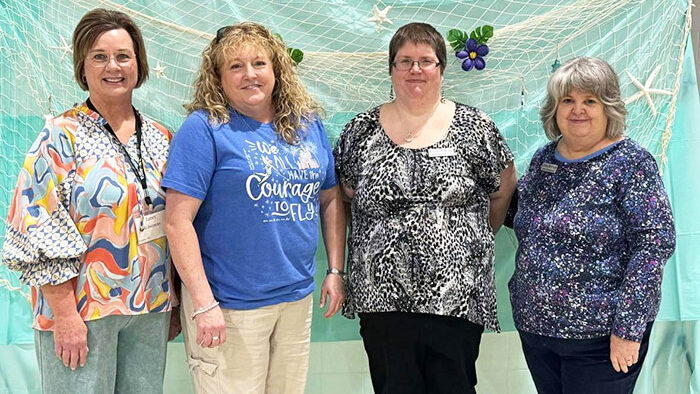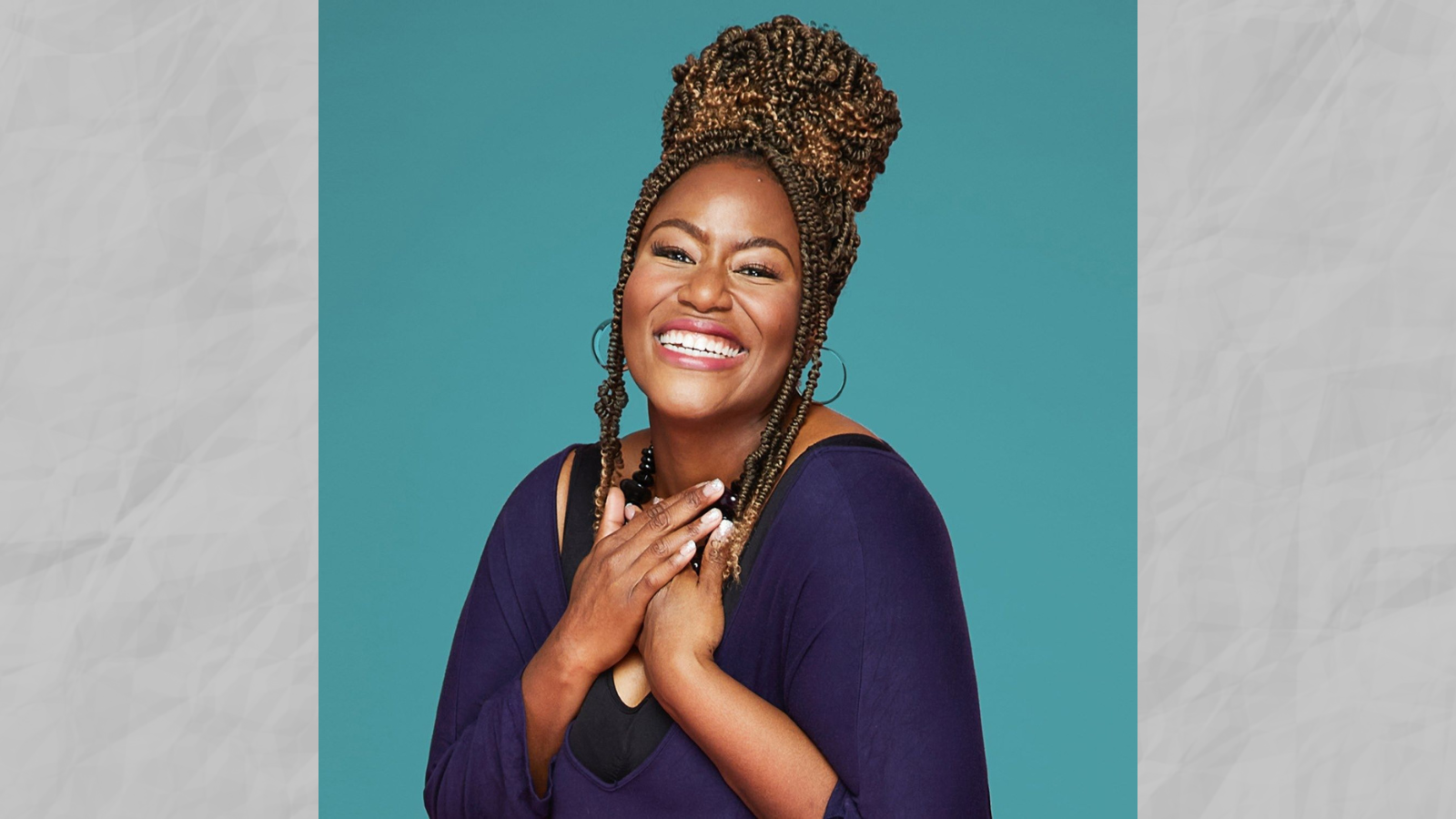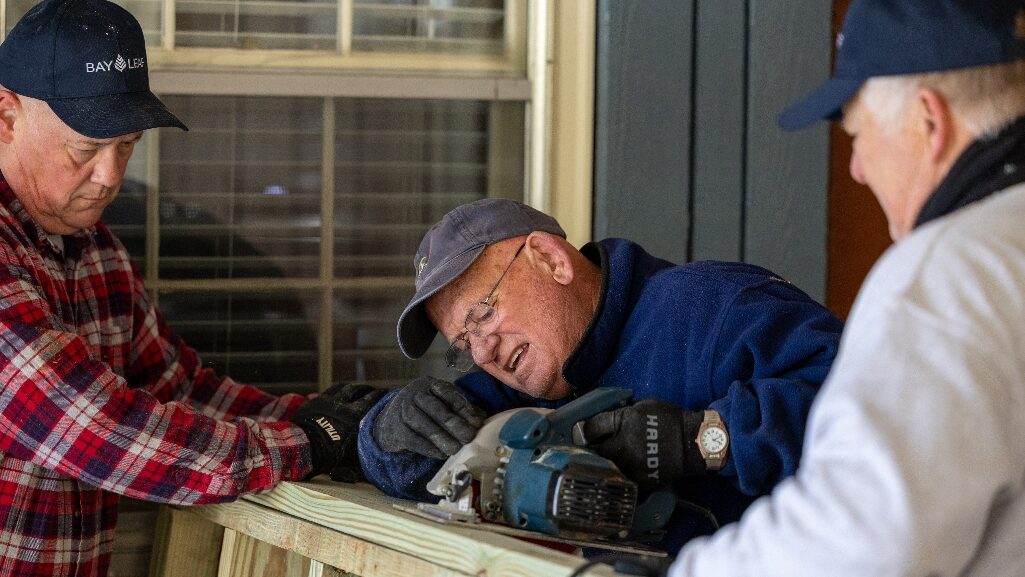Jen Hagen knew from a young age that she wanted to give her life to something worth dying for.
When she was 2, God called her family to the Philippines to live with a tribe that had been headhunters.
The B tribe’s “culture had dictated that a man was not truly a man until he had taken a head,” Jen recalled. “No outsiders had ever survived contact with them, and the surrounding areas lived in absolute terror.”
That was until the 1950s, when God “miraculously protected” the men who first brought the gospel to the B tribe, Jen said. Their lives were changed, and a church was started.
Continuing to disciple
Three decades later Jen’s parents were instrumental in continuing to disciple new believers and help the churches grow in maturity.
“Seeing the change the gospel had made in that people group, and knowing I wanted to give my life to something worth dying for, as I grew and matured and became an adult, to me there was nothing else worth giving my life for,” Jen related. “I wanted to be used by Him to be a part of helping another people group to have that opportunity to hear the gospel.”
Jen didn’t know that one day God would not only allow her to be part of that, He would also let her have a front-row seat in mobilizing the B tribe to go as missionaries to other tribes.
She and her husband, Steve, moved to the Philippines as International Mission Board missionaries in 2005.
For him the path looked a little different.
“My sister died when she was really young,” Steve recalled. “We knew she was a believer and had a very strong faith — God had used her for others to come to know Him, nurses and other people in the hospital — but what gripped me at that time was this: What if she had never heard?”
Much like Jen, from that point on he wanted to be part of helping make sure people everywhere had a chance to hear and respond to the gospel, even if they lived in the most remote places.
That’s what he found in the Philippines: Sometimes they did.
Making it work
Over the years it was normal for the family to hike several hours to get to a village where they would set up home base for a while. Jen said there was a period when they were raising their three children that their furniture lived in one place and they would just visit it sometimes.

“We were camping out in mountain villages for a couple of months at a stretch doing mobilizing, backpacking in with our homeschooling supplies,” she explained.
While Jen taught young Mikayla, Zach and Ben, and as she cooked and washed clothes in the river, Steve would hike to surrounding villages, mobilizing believers to go out and share their faith and start new churches.
“You start realizing the truth of what Jesus said — if you leave father and mother and home, He’ll replace it a hundredfold,” Steve noted. “There were more than 100 houses that we could show up at at any point and say, ‘Hey, we need a place to stay,’ and they would receive us in.”
Fresh motivation
At the same time the Hagens were working among the B tribe, they also had been working among unreached A tribes.
They saw some fruit there, but Jen said there “were many barriers to us effectively reaching the A tribes.”
During their second three-year term on the missions field, “God planted an idea in our hearts: How cool would it be if God would use the B tribe to reach the A tribes?”
So they began to take steps toward that end. The B tribe had already sent out one missionary on their own, but with no support or training. So Steve and Jen began helping the B tribe learn how to pray through who to send and how to train and support them.
Through the process, the churches have seen their impact, and that’s given them a fresh fire, Steve said.
“We’ve spent a lot of time working with the sending churches helping them understand what it takes to raise up and support missionaries, and we’ve seen that multiply their impact,” he added. “That’s something they will be able to continue to do into the future when we’re not partnered there anymore.”
Following the New Testament
The effort — called Tribals Reaching Tribals — fits right in with the IMB strategy of globalization, or helping other countries become more effective at sending out their own workers.
Steve serves as the IMB globalization catalyst for his part of the world, and the strategy is simply the one modeled in the New Testament — the Apostle Paul “built his team from the places he had gone to first, and they became his partners,” Steve explained.
“As Paul kept his focus on the unreached, he also kept connections with the churches and they began sending people along with him. So it’s a really great focus IMB has now, to not only send but partner with others as they send.”
Jen said that’s the passion behind Tribals Reaching Tribals — to “strengthen the church where it is to send the church where it is not.”
“We have focused on mobilizing the church to send, not mobilizing the people to go,” she explained. “And we have been amazed at how the B church has been strengthened as they have focused on the unreached even though they have sent out some of their very best.”
Fruit
It’s also been emotional for Jen’s parents to see how God has continued the work in which they invested their lives.
“A lot of the guys my dad discipled back in the ’80s, some of them we work with, but a lot of them, it’s their sons or their disciples that we’ve sent out as missionaries,” Jen said.
Steve related one of the most meaningful moments for him: Jen’s dad was there to meet with some of the B missionaries as they talked with some believers from the A tribe about a recent map they had put together to decide where to place new teams.
“Her dad really got to crying at that point,” Steve remembered, “because his passion had been originally going to the unreached, and he got sent in to train church leaders in an already-reached people group, which was not originally on his heart to do.
“But now it wasn’t just one people group he was able to target, but the B whom he had mentored and helped to get strong was now at that point engaging five unreached people groups and planning toward the other ones.”
‘Front-row seat’
Working alongside local churches, Tribals Reaching Tribals has been able to take the gospel “so much further,” Steve said.
Jen noted the whole thing was God’s doing, not theirs.
“There would be a lot of people who would say that even just getting a few believers from a group of headhunters is asking a lot and that’s not likely to happen — but not only is there a thriving church among what used to be a headhunting group, since 2011 they’ve sent out more than 30 missionaries from the people there,” she related. “Not all of them have partnered with us; some have gone to other areas, but most have come down to work with us in reaching the A tribes.”
Jen and her family are “privileged to have a front-row seat,” she said, and be along for the ride of what God is doing among tribal groups in the Philippines.
She and Steve also are thrilled to watch as God has called their daughter Mikayla, now a college graduate, back to the Philippines to help start a safe house for young girls rescued from trafficking.
The whole family is “just a little piece of what He’s doing,” Jen said.
She asked prayer for the Tribals Reaching Tribals team and their partners as they work together to train new missionaries to go to unreached people groups, some of which take hours to hike to and have their own heart languages.
Among the A tribes “for there to be a church within an hour’s walk of all the tribals in that area, we need 800 churches,” Jen noted, “and right now we have around a dozen churches.”
“There’s still so much work to do, and we would love prayer for more workers, and for wisdom for us to work together in a way that glorifies God.”
More resources also are needed to build up the tribal missionary training center and grow the tribes’ sources of sustainable support, like coffee farms, which provide the people with income from which to fund their missionaries.
“There are lots of opportunities for people in the States to come alongside us,” Jen said.
For more information visit www.imb.org/give/project/empowering-tribals-to-reach-tribals.








